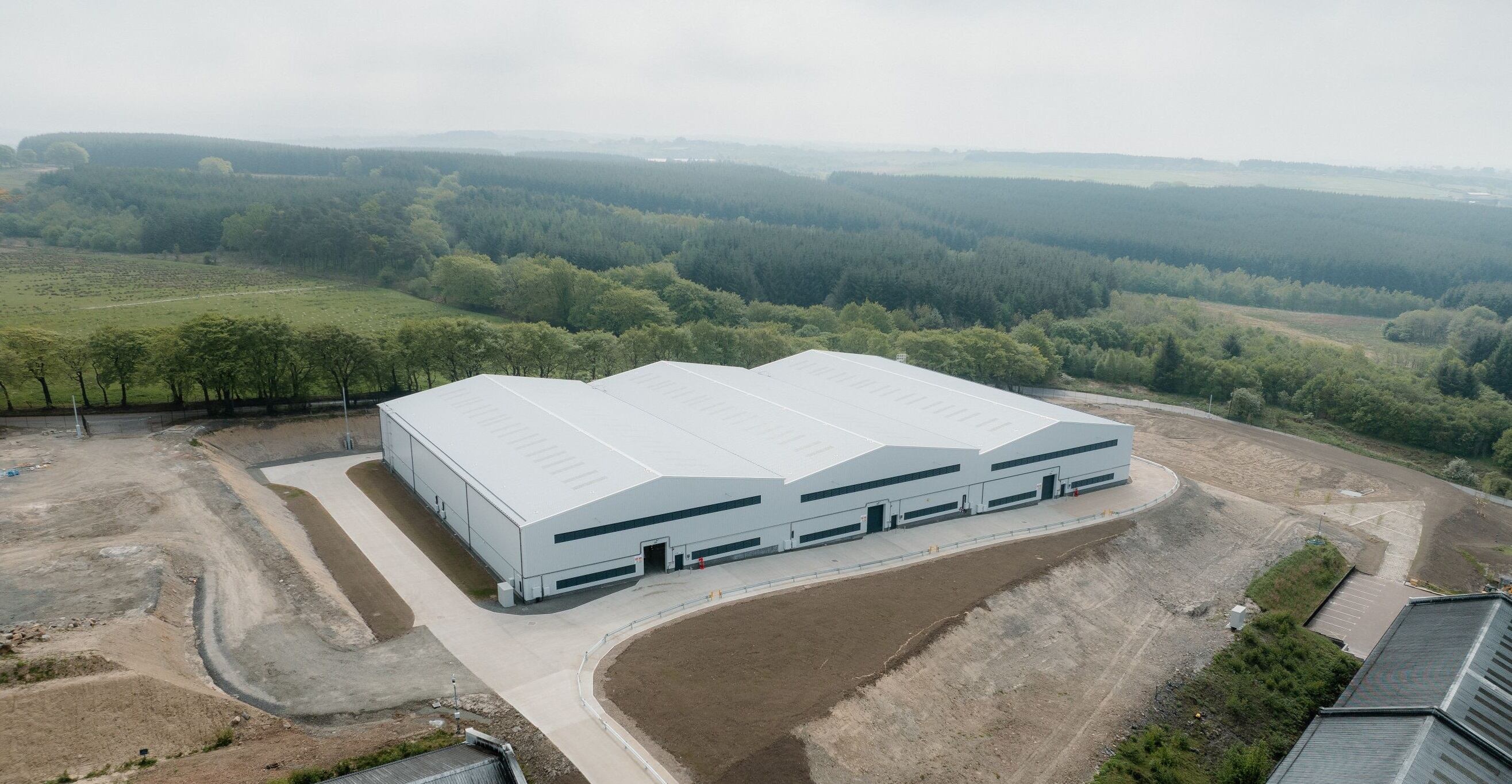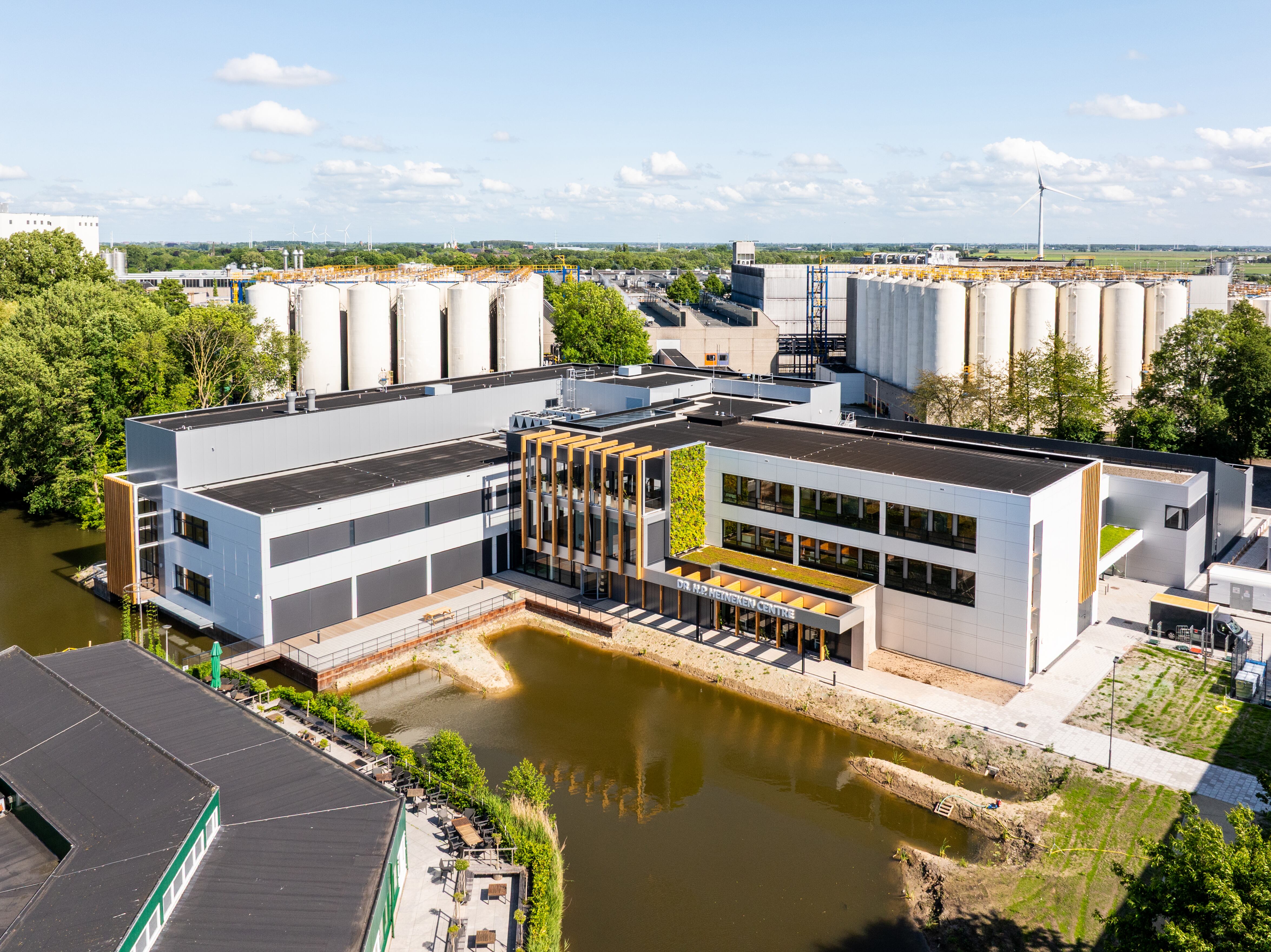The last few weeks have seen a flurry in investments as beverage giants eye up opportunities for the future: setting up capabilities and capacity for years to come.
From production lines and manufacturing upgrades to the R&D labs that will define future products, here are some of the investments beverage companies are making.
Heineken brews the future of beer with new R&D facility
Heineken has opened a new €45m global R&D facility in the Netherlands.
The 8,800 m² Global Research and Development Centre in Zoeterwoude is located next to the company’s brewery, which is the largest in Europe. Research will focus on enhancing brewing techniques and developing new beers and other beverages that meet consumer trends, as well as looking at driving improvements in sustainable brewing and fermentation science.
It is also strategically located near the Delft University of Technology: bridging academic research, brewing expertise and global market needs, and fostering cross-disciplinary collaboration between Heineken’s international R&D teams, universities and suppliers.
The Dr. H.P. Heineken Centre is named after Dr. Henry Pierre Heineken (1886–1971), a Doctor of Chemistry and second-generation brewer who became the first successor to Heineken founder Gerard Adriaan Heineken and his wife, Mary Tindal, in 1914.
The center was opened this month by His Majesty King Willem-Alexander.
Danone ups coffee and creamer production capacity
Danone has opened a $65m production line in Jacksonville, Florida, to support growth of its coffee and creamer portfolio.
This expansion of the 115,025 square-foot facility, which has been in operation since 1948, supports the continued growth of Danone’s coffee and creamer portfolio, including brands such as International Delight creamers and STōK Cold Brew Coffee.
The facility will also use a unique bottle-molding process to increase production capacity and deliver efficiency and sustainability benefits: resulting in a 30% reduction in bottle loss.
Danone is also investing in a new regional distribution center in the Jacksonville area: helping the company deliver products at peak freshness across the Southeastern US.
The two sites are expected to add nearly 200 direct and indirect jobs.
Tetra Pak turns to fermentation tech for the future of food
Tetra Pak has opened its New Food Technology Development Centre in Karlshamn, Sweden.
The facility will help producers of biomass and precision fermentation-derived food products develop technical processes, define their efficient equipment needs and create investment strategies with minimal risk.
Whether using fermentation to create functional ingredients or formulating for a direct end-use, such as meat and fish substitute products, the new facility will help overcome the challenges of scaling up and reaching profitability.
With tailored support from experts, the new set-up will help producers take their New Food from prototype to commercial-scale production and is there to help companies of all shapes and sizes: from start-ups and scale-ups to established F&B companies.
Biotech and food technologists, lab technicians and line solution exports are there to collaborate with food producers to design, run and analyse trials customized to microorganism strain features and desired production outcomes.
Food producers can also collaborate with other Tetra Pak product development facilities in Lund on food properties and functionalities, trialing different final product formulations, and developing brand or product identity to create an effective go-to-market strategy.
Building capacity for international Scotch whisky demand
International Beverage, the international arm of Thai Beverage Public Limited Company, has expanded its headquarters site in Airdrie, Scotland, with six new bonded warehouses.

Representing a £7m investment, the new warehouses are part of an upgrade of storage and logistics capabilities across the business. The new facility can house 60,000 casks, taking the site’s warehousing capacity to around 700,000 casks overall. It also provides much-needed extra maturation space for spirit from the company’s five Scottish distilleries.
The investment supports the company’s long term global growth plans for its premium spirits portfolio, which includes Old Pulteney, Speyburn, Balblair and anCnoc single malt whiskies, Hankey Bannister blended Scotch whisky, Caorunn Gin and Phraya Rum.
Demand for lightweight glass bottles
European glass packaging manufacturer Vetropack Group is enhancing its site in Pöchlarn in Austria, and installing a large-scale machine for lightweight glass bottles.
The thermally hardened glass bottles, produced using a method developed by Vetropack, are increasingly being adopted as a sustainable and reusable option, says the company. The bottles are up to 30% lighter than traditional reusable bottles.
The bottles are currently produced exclusively in Pöchlarn, although the company is eyeing up the potential to expand to other production sites in the future.
The new line is expected to go into operation in summer 2026.

